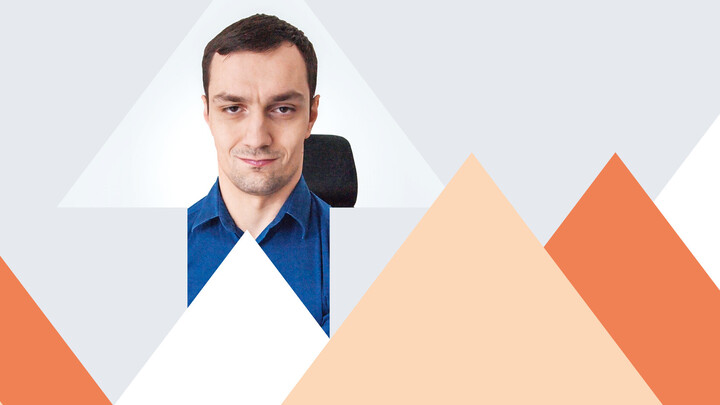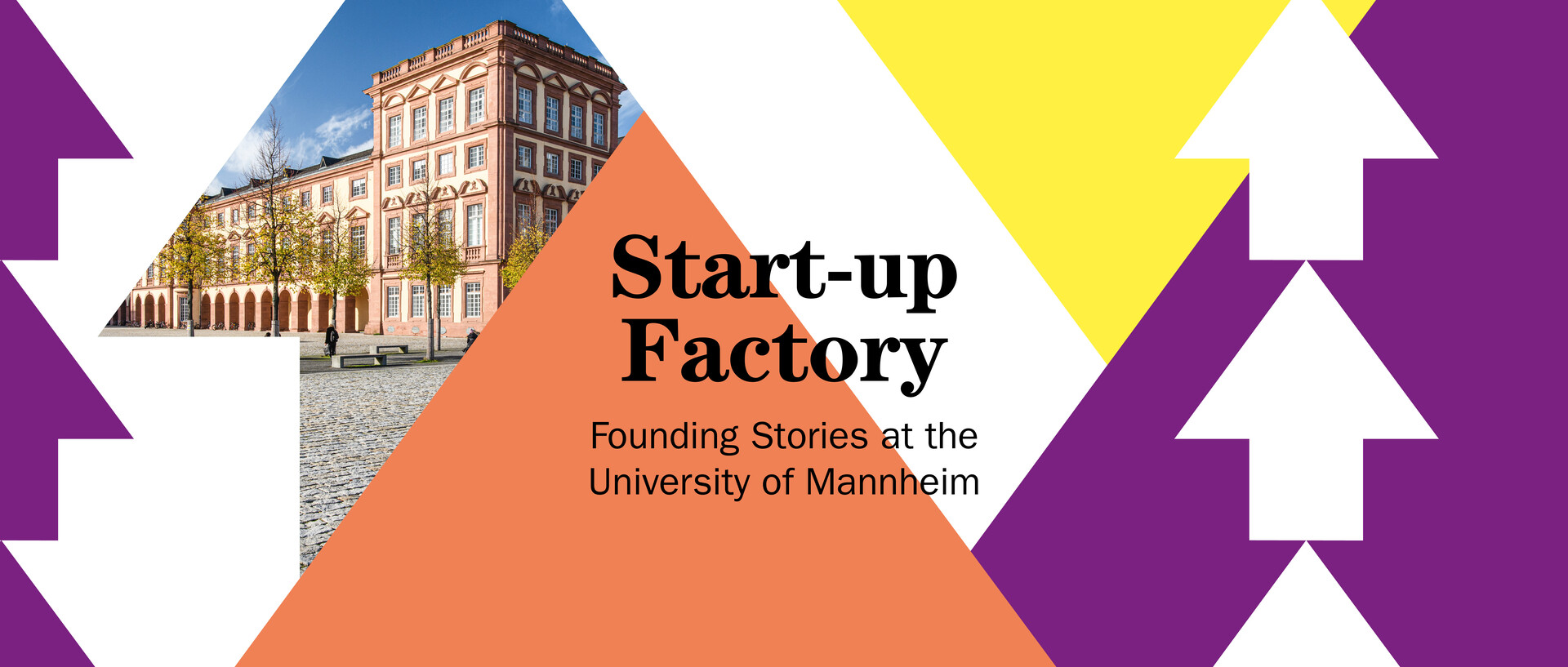Treye IT: Look to Click
Controlling a computer with just head movements? Thanks to Treye IT, a start-up founded by Mannheim alumnus Anton Wachner, this is now a reality. His innovative software, FourWays, enables people with disabilities to use laptops and tablets without relying on their hands.

Scrolling through search results, shopping online, navigating from one website to another, or printing a document with a right-click—tasks that most people take for granted can be extremely challenging or even impossible for individuals with physical disabilities. Standard laptop and computer use assumes full hand mobility, leaving many without viable alternatives. This is the gap that Anton Wachner sought to close. His solution? FourWays, a software program that allows users to control a cursor through head and eye movements.
The 38-year-old University of Mannheim alumnus was born with a severe physical disability himself. “I can still use my hands to some extent, but I’ve met many people over the course of my life who can’t,” he explains. These encounters gave rise to the idea for his software: “In today’s world, it should be possible for a technical device to understand me just by following my gaze.” His special concern in with those who can’t easily go clubbing with friends or go on a bike tour. “For them, being able to stay connected online is even more important.”
Wachner’s start-up Treye IT (initially called Treye Tech), which sells the FourWays software, was founded almost by chance. In 2016, while still a business informatics student at the University of Mannheim, he came across a career service email promoting a start-up competition hosted by consulting firm BearingPoint. The challenge? To develop a sustainable and innovative business idea. “I thought to myself: I have ideas all the time,” he recalls with a laugh. “So I teamed up with four classmates and participated in the competition.”
They quickly came up with a proposal for an app that would allow smartphones to be controlled entirely by eye movements. At the time, the idea was just that—an idea. “We hadn’t even written a single line of code,” Wachner admits. Accordingly, the team never expected to win. But to their surprise, the five Mannheim students took first place in the competition.
From the classroom to the start-up world
Encouraged by the win, Wachner, then a master’s student, pursued his idea further, eventually founding his IT start-up in 2017. “However, we soon realized that our original concept wouldn’t work,” Wachner says. “People aren’t willing to pay for apps, and at the time, insurance companies weren’t covering these kinds of applications.”
Undeterred, he stuck with his idea, refining it into FourWays, a software solution designed for computers, laptops, and Windows tablets. Wachner even patented the system’s control logic. “Once installed, any webcam can be turned into an input device,” he explains. “Depending on user preferences, the camera detects either head or eye movements, controlling the cursor or triggering a click.”
While similar technologies exist, they typically rely on external hardware devices that require periodic replacement, whereas FourWays is a purely software-based solution. “Most of these external systems already trigger a click when a user stares at a point for too long, which can quickly become exhausting,” Wachner notes. FourWays takes a different approach, responding only to a set of predefined gestures.
Continuous development and user feedback
After years of development, Wachner and his Treye IT team—by then four people strong—finally launched FourWays in 2022—and the start-up quickly gained its first customers. “We’re especially happy about the fact that the insurance companies have fully covered the costs so far.”
Unlike many other products, FourWays was “far from being finished” when it launched. Wachner is committed to continuously refining the software based on user feedback. “Our program is constantly improving, creating greater value for current and future users because they tell us what works—and what doesn’t,” he says. His goal? To collaborate with as many care facilities as possible in order to accommodate a wide range of user needs.
While Wachner’s business informatics background gave him the technical know-how to develop the software, launching a company was a completely different challenge. “As a recent graduate, I had no experience in project management or running a business,” he admits. “We visited the Up2B start-up accelerator—a program run by InnoWerft Walldorf, NEXT MANNHEIM, and the Heidelberg Technology Park—which helped us turn a rough concept into a viable business model.” But Wachner credits his university experience for teaching him something even more important: perseverance. “At Mannheim, I often had to push through subjects I didn’t understand at first. The start-up world is exactly the same—you just have to keep going,” he says.
A breakthrough investment on national television
According to Wachner, one of the biggest milestones for Treye IT came in summer 2024, when he pitched his company on Die Höhle der Löwen—Germany’s version of Shark Tank. In this TV show, entrepreneurs make business presentations to a panel of angel investors—successfully, in Wachner’s case. He secured a deal with entrepreneur Carsten Maschmeyer, who has since provided both financial backing and strategic guidance. “That was one of the best moments of my journey so far,” Wachner says.
Now, his team is revisiting their original idea—the smartphone app. “We’ve already had several people ask to test it,” he notes. But Wachner’s ambitions extend even further. His long-term goal? “I want us to become the market leader in hands-free control technology.” That would not only benefit people with disabilities—his technology could be used in many public places: “Who really wants to touch public touchscreen kiosks, ATMs, or ticket machines that thousands of people have used? Our technology could benefit everyone. That’s what inclusion really means.”
Text: Jessica Scholich / April 2025
For more about Treye IT see the start-up's website (in German).
